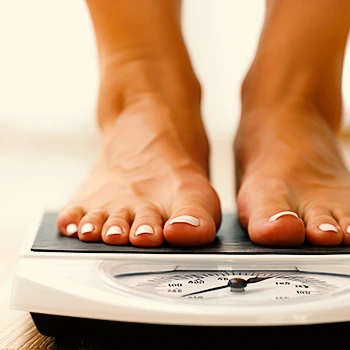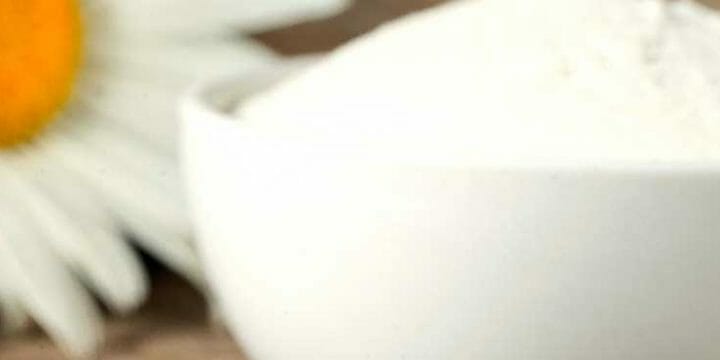As a medical doctor, my female patients are often skeptical when I recommend creatine monohydrate for powering their workouts with concerns that it will bulk them up muscles like men.
I always assure them that this is just a misconception, but to address this matter to my readers as well, I decided to publish this report addressing all the questions people have about creatine for women.
Let's dive in
Quick Summary
- Women should take creatine for increased energy during workouts, reduced fatigue, and toning benefits.
- Creatine can be taken pre and post-training for added benefits.
- A woman should take 3-5 grams of creatine per day or 14mg for every pound as per the recommendation as shown in reports by the National Institutes of Health.
- In my professional experience, creatine is a game-changer for women seeking an edge in their fitness journey without the fear of unnecessary bulking.
Can Women Take Creatine?

Yes, women can take creatine. It’s one of the safest workout supplements and is highly researched for its effectiveness.
Even though most sports nutrition companies put Hulk-sized men in their marketing, it doesn’t mean that you will look that way.
I usually tell my female patients that to get that kind of increased muscle size, they need intense strength training, protein-filled diets, and genes working to their advantage. Men are prone to bulk up like that because of the science behind their muscular body composition.
Women generally have less muscular composition than men, so what creatine does when combined with exercise is help them build lean muscle and look toned.
What Are The Benefits of Creatine For Women?
The benefits of creatine for women include increased energy and strength, muscle toning, and reduced fatigue.
In the course of my research on creatine for women, I found few studies on creatine for women. And although this is the case, I assure you that it's still beneficial for women in so many ways.
Let's examine some of the benefits in detail.
Increases Energy

Creatine can help your body by creating more ATP energy, and I've seen this in my patients' experiences. It's what fuels your muscles and gives you momentum for your exercise.
Your body naturally produces creatine, which turns into ATP energy. When my patients have added a creatine supplement to their routines, they've shared with me their firsthand experiences of having more power during their workouts.
Increases Muscle Size
Creatine helps you gain muscle. It affects proteins that form muscle fibers and increases hormones that aid in muscle size.
For women experiencing menopause, which can affect muscle mass, creatine supplementation may offer additional support by helping maintain muscle strength and overall physical health during this significant life transition.
It is a useful tool to support you if you are looking to mass-build, as per studies published in the National Library of Medicine.[1]
Men love this benefit, but I know some women who are wary of creatine because they don’t want to mass-build.
Like I said before, taking creatine alone won’t give you muscle gains and there's a lot of science behind muscle gain beyond just taking creatine and exercising.
Improves Strength
Creatine can also boost your strength, as shown by research published by the National Institutes of Health[2].
It doesn’t matter your training level. I've personally seen creatine working for patients who are stepping into the gym for the first time and even athlete-level patients.
Creatine has a direct impact on your ATP levels, which means you can experience improvements with high-intensity workouts.
It’s not a quick fix to your strength training, but it will get you down the right path.
May Reduce Fatigue
My favorite part about creatine for women is the fact that it can help reduce your fatigue when exercising. This is backed by scientific research which shows that taking creatine can reduce exhaustion [3].
It's one of the reasons I recommend it for women at all fitness levels, especially beginners.
What's more interesting, as per the feedback I get from my patients is that this vigor is not limited to just exercising, it extends beyond and during the day.
Although it’s not the primary reason why people supplement with creatine, it certainly offsets tiring workouts and daily schedules.
Interestingly, creatine has also shown promise in aiding recovery from COVID symptoms of general fatigue, loss of smell and taste, and breathing difficulties, making it a supportive supplement for post-viral health challenges.

How Much Creatine Should A Woman Take?

A woman should take 3-5 grams of creatine per day. That's the recommendation as shown in reports by the National Institutes of Health [4].
If you are looking for an exact amount, then multiply 14mg for every pound you weigh.
(Loading) can prime your muscles to increase the amount of creatine that they ‘hold
- Autumn Bates, Clinical Nutritionist
As a physician, I've found this to be the ideal dose, not too little and not too much for my female patients based on the results and feedback I get from them.
Related Article: Creatine Water Intake
When Should Creatine Be Taken?
When you should take creatine depends on your goals. If you're taking it to power your workouts, then, of course, you need to take it before. However, you can also take it after your workout for those gains.
Personally, I like recommending it before a workout for the added benefits of increased strength and reduced fatigue when exercising, even for those looking for muscle-toning benefits.
Related Post: Does Creatine Expire?
Do You Need to “Load” Creatine?
You don’t need to load creatine, but if you want to see results faster, then it’s something to consider.
Loading simply means taking an excessive amount of creatine monohydrate for about one week. As a medical doctor, I'm usually careful not to go overboard when recommending this loading phase for my patients. So I usually go for 20 grams per day but split it up into four servings of five grams.
The science behind the loading phase is that it will boost creatine in your muscles, which will help you get the benefits faster.
How Long Should Creatine Be Used?

Creatine supplements are relatively safe for long-term use at the right dosage. One study published by the National Institutes of Health monitored it for five years and didn’t note any adverse effects [5].
Drawing from my years of experience as a physician, I typically advise my patients to incorporate “cycle-off” periods into their creatine use. This approach involves a regimen of using creatine for 2-3 months and then taking a two-week break.
My extensive experience has shown that this strategy can be effective in preventing the body from developing dependence on creatine.
Will Creatine Make Women Bulk Up?
Creatine will only make women bulk up if they actively work to increase their muscle mass. That includes intense strength training sessions and diets that focus on muscle gain.
It's a concern I've heard from lots of women who do not want to bulk up like the Hulk-sized men in the marketing ads.
As said before, the female body is different from the male's body, with the latter having a bigger composition of muscle than the former. Creatine supplementation most likely won't bulk up your muscles but help you tone them when you include cardio and aerobic exercises.
Will Creatine Make Women Gain Weight?
There is a potential for creatine to make women gain weight. But the good news is that weight gain is not caused by fat.
Creatine supplementation leads to your muscles storing water in their cells. It does make your body look bigger, and the water retention does lead to a heavier weight.
It’s an ideal look for bodybuilders but not for those wanting to look lean or endurance athletes. You need to consider your training goals to determine if creatine is recommended for workouts.
Can Creatine Help Women Lose Weight?

Creatine won’t directly help women lose weight. It can only indirectly help by causing an energy boost, which would lead to more power in your workouts.
Resistance training will create muscle growth, and more muscles mean that you can burn calories faster.
But as I mentioned earlier, creatine can make your body retain water. It will add 1-3 pounds on the scale.
If you are looking to lose weight, then it’s best to talk to a health professional about a proper diet and exercise program.
Related Article: Difference Between Creatine HCL And Monohydrate
References:
- https://www.ncbi.nlm.nih.gov/pubmed/25993883
- https://www.ncbi.nlm.nih.gov/pubmed/11581551
- https://pubmed.ncbi.nlm.nih.gov/18053002/
- https://www.ncbi.nlm.nih.gov/pmc/articles/PMC7998865/
- https://pubmed.ncbi.nlm.nih.gov/10999421/
About The Author
You May Also Like






